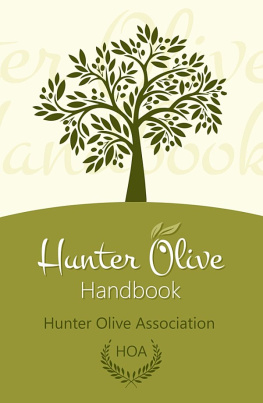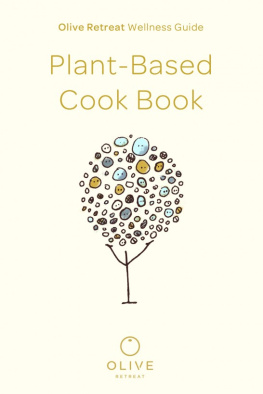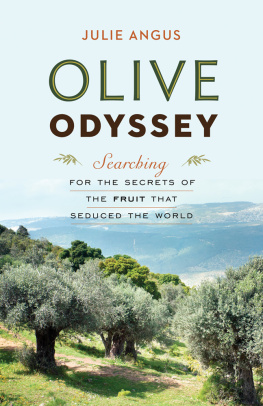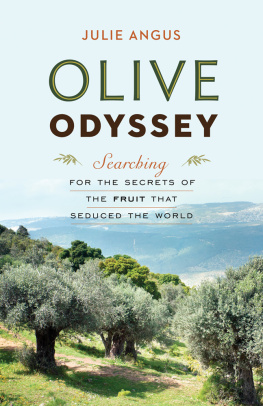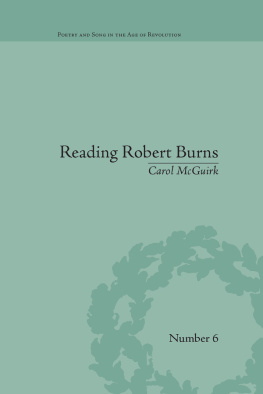Olive Ann Burns - Cold Sassy Tree
Here you can read online Olive Ann Burns - Cold Sassy Tree full text of the book (entire story) in english for free. Download pdf and epub, get meaning, cover and reviews about this ebook. year: 1984, publisher: Houghton Mifflin Harcourt, genre: Prose. Description of the work, (preface) as well as reviews are available. Best literature library LitArk.com created for fans of good reading and offers a wide selection of genres:
Romance novel
Science fiction
Adventure
Detective
Science
History
Home and family
Prose
Art
Politics
Computer
Non-fiction
Religion
Business
Children
Humor
Choose a favorite category and find really read worthwhile books. Enjoy immersion in the world of imagination, feel the emotions of the characters or learn something new for yourself, make an fascinating discovery.
- Book:Cold Sassy Tree
- Author:
- Publisher:Houghton Mifflin Harcourt
- Genre:
- Year:1984
- Rating:3 / 5
- Favourites:Add to favourites
- Your mark:
- 60
- 1
- 2
- 3
- 4
- 5
Cold Sassy Tree: summary, description and annotation
We offer to read an annotation, description, summary or preface (depends on what the author of the book "Cold Sassy Tree" wrote himself). If you haven't found the necessary information about the book — write in the comments, we will try to find it.
Cold Sassy Tree — read online for free the complete book (whole text) full work
Below is the text of the book, divided by pages. System saving the place of the last page read, allows you to conveniently read the book "Cold Sassy Tree" online for free, without having to search again every time where you left off. Put a bookmark, and you can go to the page where you finished reading at any time.
Font size:
Interval:
Bookmark:
HOUGHTON MIFFLIN COMPANY
BOSTON NEW YORK
Copyright 1984 by Olive Ann Bums
For information about permission to reproduce selections
from this book, write to Permissions,
Houghton Mifflin Company, 215 Park Avenue South,
New York, New York 10003.
Library of Congress Cataloging in Publication Data
Burns, Olive Ann.
Cold Sassy tree.
I. Title.
ps3552.u73248c6 1984 813'.54 84-8570
ISBN 0-89919-309-9
ISBN 978-0-89919-309-0
Printed in the United States of America
DOC 30 29 28 27 26 25 24 23 22
To Andy
My beloved
To Becky and John
Our grown children
And to my father
Who was fourteen in 1906
C OLD SASSY is a lot like Commerce, Georgia, at the turn of the century. I couldn't have understood small-town life in that era without the oft-told tales of my late father, William Arnold Burns. He grew up in Commerce, was fourteen in 1906, and, like Will Tweedy, could always make a good story better in the telling. Another rich source of information was the delightful History of Harmony Grove-Commerce, Jackson County, Georgia, 18101949, by Thomas Colquitt Hardman. I am indebted to the Atlanta Historical Society for access to old Atlanta newspapers, and to C. Vann Woodward's Tom Watson: Agrarian Rebel (The Macmillan Company, New York, 1938) for filling the gaps in my knowledge of conditions in Georgia at the time of this book.
I have many reasons to thank my husband, Andrew Sparks; also the children's book author Wylly Folk St. John, who for years urged me to try a novel; Norma Duncan, my neighbor, who saw what was right and wrong with the early manuscript; Eleanor Torrey West at Ossabaw Island, Mary Nikas at the Hambidge Center, and Dr. and Mrs. T. E. Reeve, who provided places where occasionally I could get away from home to write; Menakhem Perry, literary critic and University of Tel Aviv professor, who read the first four hundred pages and helped me believe it was good; Anne Edwards, author of Road to Tara, who recommended it to her publisher, Ticknor & Fields; Chester Kerr, former president of Ticknor & Fields, and his wife, Joan, without whose encouragement I would still be finishing the manuscript; Katrina Kenison, my editor at Ticknor & Fields, and Frances Apt, manuscript editor, both of whom helped make Cold Sassy Tree what it is today.
T HREE WEEKS after Granny Blakeslee died, Grandpa came to our house for his early morning snort of whiskey, as usual, and said to me, "Will Tweedy? Go find yore mama, then run up to yore Aunt Loma's and tell her I said git on down here. I got something to say. And I ain't a-go'n say it but once't."
"Yessir."
"Make haste, son. I got to git on to the store."
Mama made me wait till she pinned the black mourning band for Granny on my shirt sleeve. Then I was off. Any time Grandpa had something to say, it was something you couldn't wait to hear.
That was eight years ago on a Thursday morning, when Grandpa Blakeslee was fifty-nine and I was fourteen. The date was July 5, 1906. I know because Grandpa put it down in the family Bible, and also Toddy Hughes wrote up for the Atlanta paper what happened to me on the train trestle that day and I still have the clipping. Besides that, I remember it was right after our July the Fourth celebrationthe first one held in Cold Sassy, Georgia, since the War Between the States.
July 5, 1906, was three months after the big earthquake in San Francisco and about two months after a stranger drove through Cold Sassy in a Pope-Waverley electric automobile that got stalled trying to cross the railroad tracks. I pushed it up the incline and the man let me ride as far as the Athens highway.
July 5, 1906, was a year after my great-grandmother on the Tweedy side died for the second and last time out in Banks County. It was six months after my best friend, Bluford Jackson, got firecrackers for Christmas and burned his hand on one and died of lockjaw ten days later. And like I said, it was only three weeks after Granny Blakeslee went to the grave.
During those three weeks, Grandpa Blakeslee had sort of drawn back inside his own skin. Acted like I didn't mean any more to him than a stick of stovewood. On the morning of July 5th, he stalked through the house and into our company room without even speaking to me.
Granny never would let him keep his corn whiskey at home. He kept it in the company room at our house, which was between the depot and downtown, and came by for a snort every morning on his way to work. I and my little redheaded sister, Mary Toy, always followed him down the hall, and he usually gave us each a stick of penny candy before shutting the company room door in our faces. While our spit swam over hoarhound or peppermint, we'd hear the floorboards creak in the closet, then a silence, then a big "H-rumph!" and a big satisfied "Ah-h-h-h!" He would come out smiling, ready for the day, and pat Mary Toy's head as he went past her.
But this particular morning was different. For one thing, Mary Toy had gone home with Cudn Temp the day before. And Grandpa, instead of coming out feeling good, looked like somebody itching for a fight. That's when he said, "Will Tweedy?" (He always called me both names except when he called me son.) Said, "Will Tweedy? Go find yore mama, then run up to yore Aunt Loma's and tell her I said git on down here."
Lots of people in Cold Sassy had a telephone, including us. Grandpa didn't. He had one at the store so he could phone orders to the wholesale house in Athens, but he was too stingy to pay for one at home. Aunt Loma didn't have a phone, either. She and Uncle Camp were too poor. That's why I had to go tell her.
I ran all the way, my brown and white bird dog, T.R., bounding ahead. As usual when we got to Aunt Loma's, the dog plopped down on the dirt sidewalk in front of her house to wait. He couldn't go up in the dern yard because of the dern cats, of which there were eighteen or twenty at least. They would scratch his eyes out if he went any closer.
I found Aunt Loma sitting at the kitchen table, her long curly red hair still loose and tousled, the dirty breakfast dishes pushed back to clear a space. With one cat in her lap and another licking an oatmeal bowl on the table, she sat drinking coffee and reading a book of theater plays.
Mama never knew how often Aunt Loma put pleasure before duty like that. Mama liked to stay in front of her work. But then Loma was youngjust twentyand sloven.
When I told her what Grandpa said, she slammed her book down so hard, the cat leaped off the table. "Why don't you just tell him I'm busy." But even as she spoke she stood up, gulped some coffee, set down the cup still half full, and rushed upstairs to change into a black dress on account of her mother having just died and all. When she came down, carrying fat, sleepy Campbell Junior, her mass of red hair was combed, pinned up, and draped with what she called "my genteel black veil."
Campbell Junior pulled at the veil all the way to our house, and Aunt Loma fussed all the way. When we got there, she handed the baby over to our cook, Queenie, and hurried in where Grandpa was pacing the front hall, his high-top black shoes squeaking as he walked.
I couldn't help noticing how in only three weeks as a widower he already looked like one. His dark bushy hair and long gray beard were tangled. The heavy, droopy mustache had some dried food stuck on it. His black hat, pants, and vest were dusty and the homemade white shirt rusty with tobacco juice. Granny always prided herself on keeping his wild hair and beard trimmed, his shirts clean, his pants brushed and "nice." Now that she was gone, he couldn't do for himself very well, having only the one hand, but he wouldn't let Mama or Aunt Loma do for him.
Next pageFont size:
Interval:
Bookmark:
Similar books «Cold Sassy Tree»
Look at similar books to Cold Sassy Tree. We have selected literature similar in name and meaning in the hope of providing readers with more options to find new, interesting, not yet read works.
Discussion, reviews of the book Cold Sassy Tree and just readers' own opinions. Leave your comments, write what you think about the work, its meaning or the main characters. Specify what exactly you liked and what you didn't like, and why you think so.


